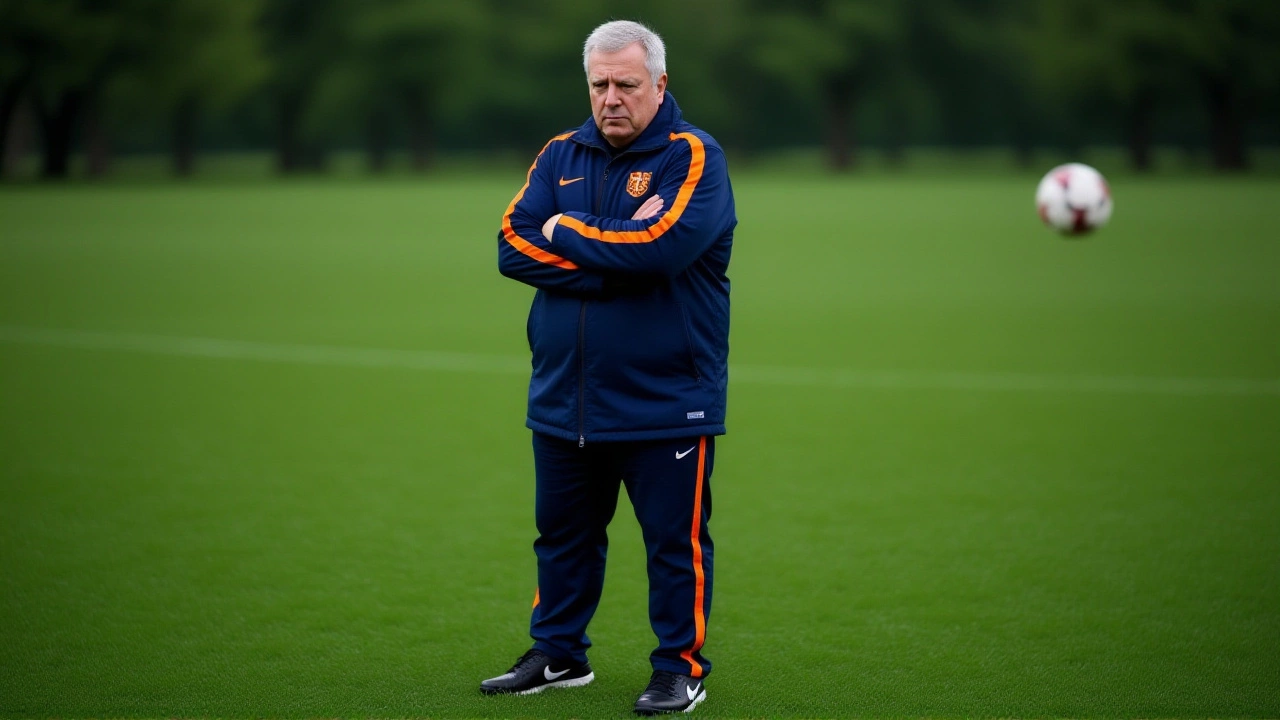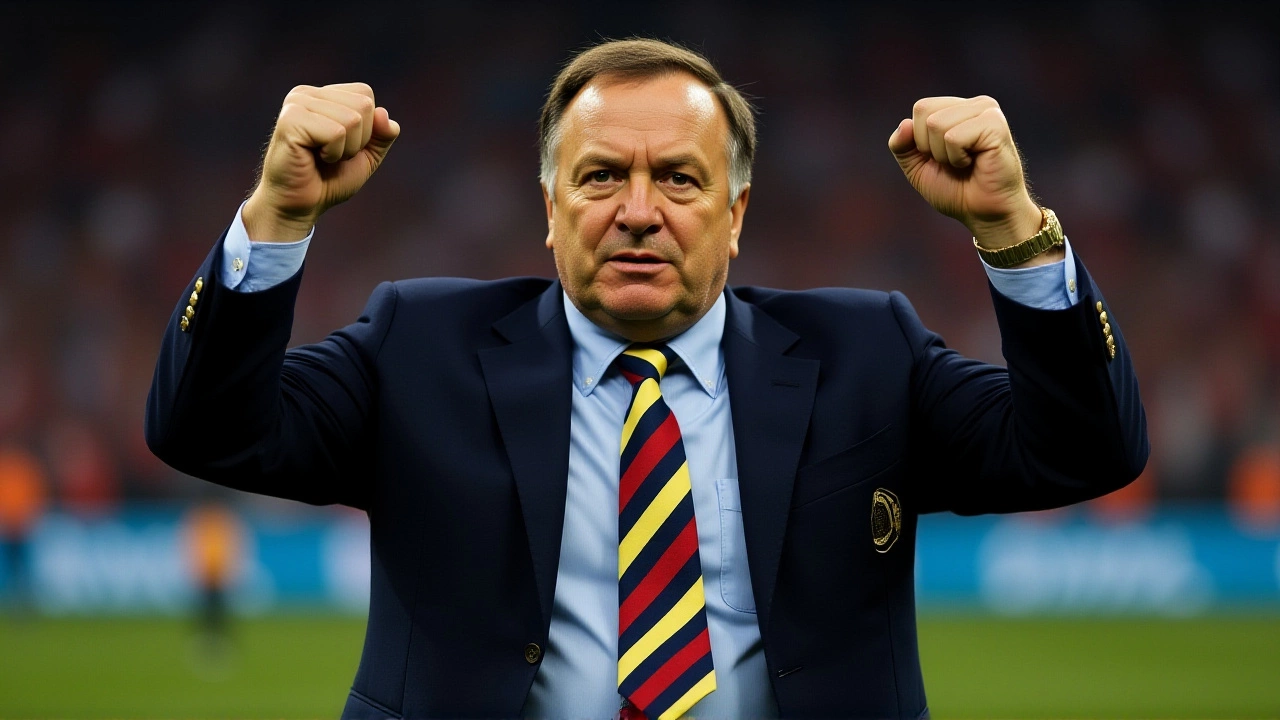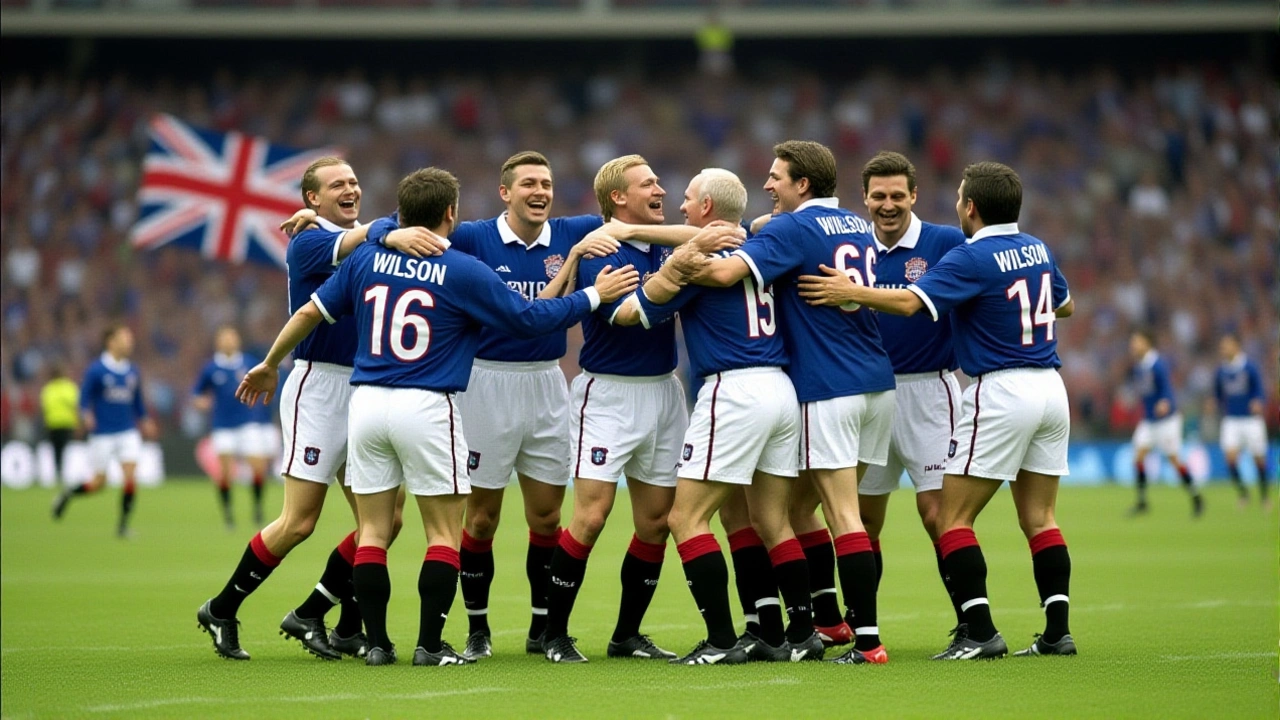When Barry Ferguson looked at the current Rangers Football Club squad struggling through the 2024/25 season, he didn’t see just a team lagging behind Celtic Football Club. He saw echoes. Specifically, he saw the 1999-2000 version of his own team — the one that lost its opening game, then didn’t lose another domestic match for over six months. "It’s not about saying we’re there yet," Ferguson told HITC in November 2024. "It’s about remembering how far you can come when the belief doesn’t crack."
The Ghosts of Ibrox
The comparison isn’t new. But it’s sharp. Rangers Football Club sits sixth in the Scottish Premiership after 12 matches, with just 18 points — five wins, three draws, four losses. Six points behind Celtic Football Club. The fans are restless. The pundits are skeptical. And then there’s Ferguson, 46, who captained the club during its last golden era, reminding everyone that this exact scenario happened 25 years ago. Back then, Dick Advocaat’s side opened the 1999-2000 campaign with a shocking 3-1 defeat to St Johnstone at McDiarmid Park. Same result? No. Same feeling? Absolutely. The squad was young, unpolished, and under pressure. Advocaat’s team had only just begun integrating Dutch imports like Giovanni Van Bronckhorst and Jorg Albertz. Barry Ferguson himself? A 21-year-old midfielder, still finding his feet. "We knew early setbacks were part of the journey," Advocaat later recalled, as quoted by Inside Ibrox. "The squad was strong, but it took time for everyone to click. After that first loss, we regrouped and focused on playing with confidence and intensity. That made all the difference."The Unbeaten Run That Changed Everything
What followed was one of the most remarkable sequences in Scottish football history. After that opening-day loss on August 7, 1999, Rangers went 31 matches without defeat in domestic competition. They won the League CupHampden Park in November, then the Scottish CupHampden Park in May. But the real statement came on May 13, 2000 — a 1-0 win over Celtic Football Club at Celtic Park, with three games left. They finished with 90 points. Six clear of their rivals. The treble was complete. Now, fast-forward to November 20, 2024. Rangers Football Club has lost four of their first 12 league games. The same questions are being asked: Is the manager under pressure? Are the players lacking grit? Can they turn it around?History Doesn’t Repeat — But It Rhymes
Inside Ibrox didn’t stop at Advocaat. They dug deeper. In 1986-87, Graeme Souness’s Rangers lost their first two league games. They were seventh after 10 matches. Then came the Christmas turnaround. Terry Butcher, Chris Woods, Graham Roberts — all new signings — gelled. The team went on a 12-game unbeaten run. They won the title. Then there’s 2021-22. Ange Postecoglou’s Celtic started poorly too. Critics called his attacking style "unworkable." He responded: "Transitions are always difficult. The style we wanted to play required adjustment, and results early on didn’t reflect our potential. We had to stick to our process and trust in the players." Celtic dropped just six points in their final 27 league games. Won the title by four. The pattern? Slow start. Doubt. Then cohesion. Then dominance.
The Current Team’s Crossroads
This season’s Rangers Football Club has a new manager — Philippe Clement — and a squad that’s been reshaped by over £100 million in transfers. But the chemistry? Still finding its rhythm. The defense looks brittle. The midfield lacks control. And the fans? They’re waiting for that spark. But here’s what Ferguson knows — and what the current players need to hear: It’s not about where you start. It’s about how you respond. The 1999-2000 squad didn’t have better players than the 2024-25 version. They had belief. They had leadership. They had a manager who never wavered. "We had new players settling in and knew that consistency would come," said an unnamed insider from that era. "Patience was key, but so was belief in the dressing room." That’s the message Ferguson is sending now. Not as a nostalgic boast. As a warning. And as a lifeline.What Comes Next?
Rangers’ next five matches include home games against Celtic Football Club and Aberdeen FC, plus a tough away trip to Heart of Midlothian. A win against Celtic in January could be the turning point — just like that 1-0 victory at Celtic Park was in 2000. The squad’s core — James Tavernier, Cameron Archer, and John Lundstram — are all experienced enough to lead this charge. But they need to play like they’ve been here before. Because they have.
The Real Lesson
The 1999-2000 treble wasn’t won by superior talent. It was won by resilience. By discipline. By refusing to panic when the world expected them to. Rangers aren’t doomed. They’re not even behind. They’re in the same position as champions before them — just at the start of the climb. The question isn’t whether they can replicate Advocaat’s run. It’s whether they have the stomach for it.Frequently Asked Questions
How does Barry Ferguson’s comparison impact current Rangers players?
Ferguson’s remarks aren’t meant to pressure the squad — they’re meant to reassure them. As a former captain who lived through the 1999-2000 turnaround, his credibility gives weight to the idea that slow starts don’t define a season. Players like James Tavernier and Cameron Archer, who’ve faced adversity before, may find renewed confidence in knowing their current struggles mirror those of legendary Rangers teams. It’s a psychological nudge: you’re not failing; you’re following a proven path.
What made Dick Advocaat’s 1999-2000 team so resilient?
Advocaat’s team combined Dutch tactical discipline with Scottish grit. Players like Giovanni Van Bronckhorst and Jorg Albertz brought structure, while veterans like Gordon Durie and Arthur Numan offered leadership. Crucially, Advocaat refused to change his system after the opening loss. He trusted his process, and the squad responded by winning 28 of their next 37 league games. Their 31-match unbeaten run wasn’t luck — it was consistency under pressure.
Is a 31-match unbeaten run possible for Rangers in 2024-25?
Unlikely in exact numbers, but the pattern is replicable. Rangers would need to win 10 of their next 12 games to match the 1999-2000 pace. With 26 matches remaining, a 16-match unbeaten streak — even with two losses — would still put them in title contention. Historical precedent shows it’s not about the length of the run, but the timing. The 2021-22 Celtic team won 19 of 21 games after a slow start. Rangers don’t need perfection — just momentum at the right moment.
How does the current Rangers squad compare to the 1999-2000 team in terms of depth?
The 1999-2000 team had fewer stars but more cohesion. Today’s squad has greater individual talent — players like Alex Lowry and Nathan Patterson are younger and faster — but less experience in high-pressure moments. The 2024-25 squad also has a deeper bench, with 14 players who’ve made 10+ appearances, compared to 10 in 1999-2000. The difference? Leadership. Advocaat’s team had Ferguson, Van Bronckhorst, and Durie speaking up. Current captain James Tavernier must step into that role — and fast.
Why do slow starts seem to be a pattern for Scottish title winners?
Scottish football’s condensed schedule and high stakes create pressure-cooker environments. New signings need time to adapt, and managers often implement new systems mid-season. Advocaat, Souness, and Postecoglou all faced early criticism. But Scottish titles are rarely won by the team that starts strongest — they’re won by the team that survives the winter. The league’s narrow margins mean one win streak can change everything. That’s why patience, not panic, is the real strategy.
What’s the biggest danger for Rangers right now?
The biggest danger isn’t Celtic — it’s self-doubt. With fans calling for managerial changes and media narratives turning negative, the dressing room could fracture. The 1999-2000 team survived because Advocaat protected them. The 2021-22 Celtic team survived because Postecoglou refused to change his identity. If Philippe Clement loses control of the narrative, or if key players start questioning their roles, even the most talented squad can collapse. Belief is the only thing they can’t buy.

Hello, my name is Kieran Beauchamp, and I am a fashion and beauty expert with years of experience in the industry. I have worked with renowned fashion houses and beauty brands, enabling me to develop a distinct eye for style and aesthetics. My passion for writing has led me to create engaging content about the latest trends, tips, and tricks in fashion and beauty. I believe in empowering others to feel confident in their appearance and take pride in sharing my knowledge with those seeking to enhance their style.